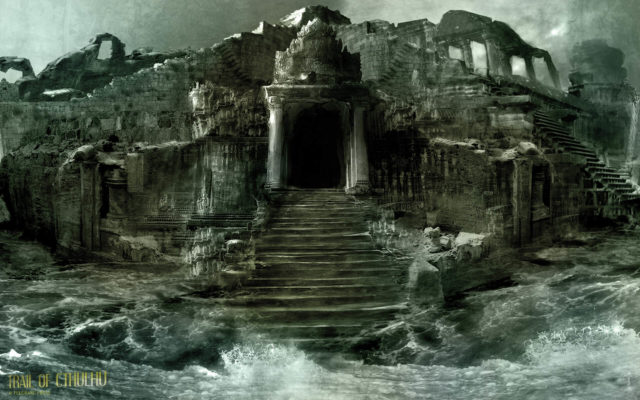 Some GUMSHOE scenarios give players the opportunity to pick up small temporary pools. In Trail, for example, reading the collected letters of a crazed physicist might give a 2-point temporary pool that can be spent on Occult, Physics or Astronomy. The players can use these points as they would regular points from their character sheets.
Some GUMSHOE scenarios give players the opportunity to pick up small temporary pools. In Trail, for example, reading the collected letters of a crazed physicist might give a 2-point temporary pool that can be spent on Occult, Physics or Astronomy. The players can use these points as they would regular points from their character sheets.
Some notes on getting the most out of temporary pools:
Pools Are A Reward
The primary function of pools is to give players an emotional reward for discovering stuff. In an F20 game, players might get the same jolt from finding a treasure chest full of gold – or (better analogy alert) magic potions. They’re a signal to the players that they’re getting close to something important, that they’re on the right trail.
Pools Are Specific
The more specific the better – pools should always come with a description of their source and scope. So, it’s not a 2-point temporary Astronomy pool – it’s “Dr. McDonald’s Astronomical Observations and Marginal Ravings” (2 points). Let players stretch this scope if they think of a good argument(“Can I spend a point from the temporary pool to repair the telescope”), but give the pool as much grounding and context as possible.
You can specify which abilities connect to a pool, or just describe the pool and let the players suggest what’s a plausible spend from that source. (“Can I spend the professor’s diary pool as Bureaucracy when dealing with the university? Like, I drop some names mentioned in the diary – “oh, Gallagher up in the history faculty said it would be all right if you sent me those records.”)
Pools Are Shared
In general, a pool gets shared among the player characters. If two investigators read the same diary, they don’t each get a separate pool – they gain access to the same shared pool. This is true even if the two investigators are completely unaware of each other! A pool’s size is a measure of its narrative importance as much as anything else.
Pools Can Be Used
Include opportunities in the scenario to actually use the pool, especially if the pool’s an obscure one. In occult games like Trail of Cthulhu or Fear Itself, arcane rituals are a great opportunity to use pool points. Night’s Black Agents or Swords of the Serpentine PCs always find ways to spend.
Pools Can Give Clues
A character with a pool can find clues using abilities from that pool. In general, be a bit more demanding when dealing with temporary pools – demand the players spend for information when you’d just give a clue for free to a character with a rating in the actual investigative ability. Core clues, of course, remain free. Pools are a great way to spread obscure abilities among the group – if a core clue can only be found with Archaeology and there’s only one archaeologist in the party, then letting them find a temporary Archaeology pool may help the story progress smoothly.
Pools Can Be General Abilities, Too
Specialised equipment can give pools of a general ability. These are character-specific, not shared – everyone wearing a scuba gear gets a 4-point Athletics pool that can only be spent on avoiding drowning.
Optional: Pools as Experience
As an optional rule to add value to temporary pools, allow players to turn any remaining temporary points into regular Investigative/General ratings at half the normal experience cost. This ties the character’s improvement into the events of the game (“Yeah, I started studying physics after we found the professor’s diary.”)


